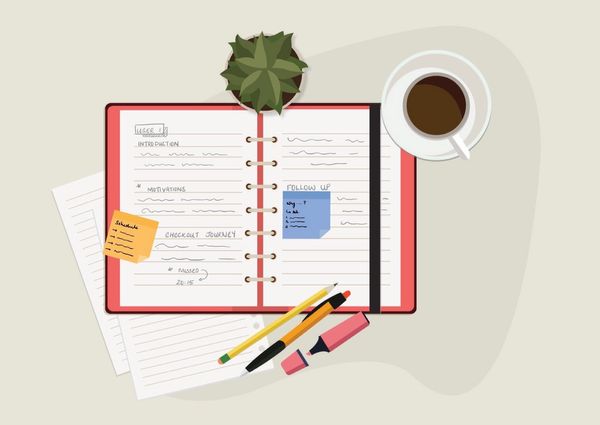Table of contents
NOTE: I’ve attached samples from my notes in this post.
When you’re starting out on your UPSC journey it can sometimes seem a little overwhelming to make notes.
Because EVERYTHING SEEMS IMPORTANT!

Over time you realise that if you still feel everything is important, you're doing something wrong.
Is there a trick to it? Should you just read toppers’ notes?
I’d say NO to both those questions.
Then how does one go about making notes? Let’s find out.
Principles for making Notes
Let’s discuss the underlying ideas about how and why notes can help you do better.
1. Quick Revision + Easy Organisation
If you ask me how should I make notes I’ll say that that’s the wrong first question to be asking.
The question you should instead be asking is WHY am I making notes?
You will realise that you’re making notes for two main reasons:
- You won’t be able to cover all the sources again during the last few months.
- You run into bits of information in tests/elsewhere that must be organised.
So with that aim in mind, make notes however you like. Just keep in mind that they should help you review the contents quickly (If you note everything down, that won’t be happening).
Secondly, your notes should help you recall information in an organised manner. If your systems are disorganised your performance will be too.
2. Note trends not events.
Now coming to how/what question.
Don’t note the events, they are mostly not important.
I say mostly because sometimes you can use the events as examples (discussed next).
Instead, you should be noting the trends and forces that led to those events. If you look at the questions from Mains 2019/2020 you will most questions dealing with trends and almost none dealing with events.
What does that tell you about things that need to be noted?
3. Use current examples to make a point
For example: if you’re asked a question about Parliamentary functioning, you can quote examples of how frequent disruptions by MPs is increasing over the years. Citing a recent walk out or protest will add bonus points to your answer.
However, this means that you must have a fact sheet(s). Because if you don’t remember the examples in context, you are reducing your chances of being able to use them in the exam. Be organised with your information.
4. Go according to the syllabus.
Don’t make notes according to books.
Why would you ever do that? What is the end goal here? Are you trying to revise more and more books?
No. The point of those books was to tackle the syllabus.
Hence, you should always makes notes with reference to the syllabus. The syllabus is a pretty well structured document and if you make notes in that manner, it will make it easier for you to recall them.
Structure helps in recall and syllabus is the easiest way to structure.
5. Finally, notes are person specific.
At all times, you are carrying a certain amount of information in your head. This information might never make it to the notes because you didn’t think it necessary to write it down.
So if you’re simply going by some topper’s notes you will miss out on a number of things that they kept exclusively in their head.
Make your own notes.
You can use the topper’s notes for reference but don’t be solely reliant on them.
My notes
Here are some samples from my notes from my Mains 2020 attempt. This is to give you an idea of what I’m talking about. I had made notes for almost each and every topic mentioned in the syllabus in this manner (point 4).
Check and see if they’re compliant with all the 5 points above.
Civil Disobedience Movement
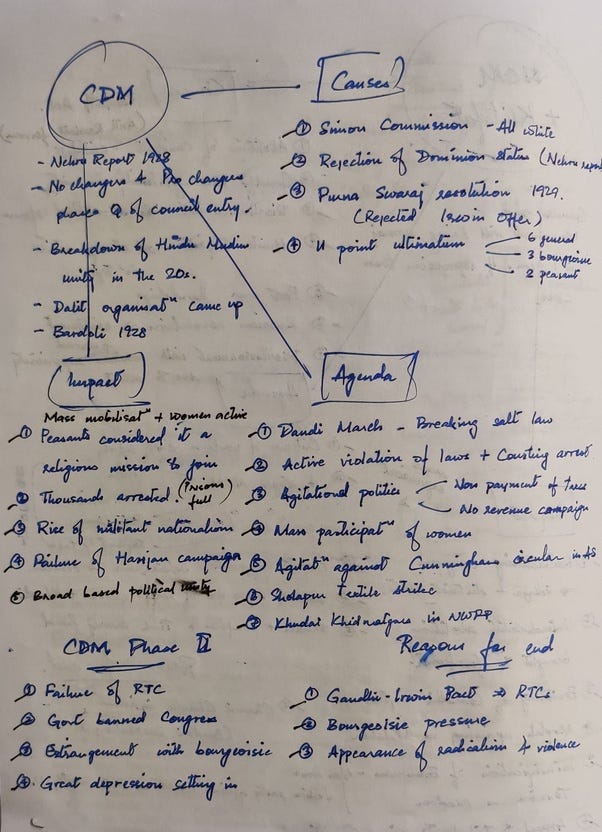
Movements & participants
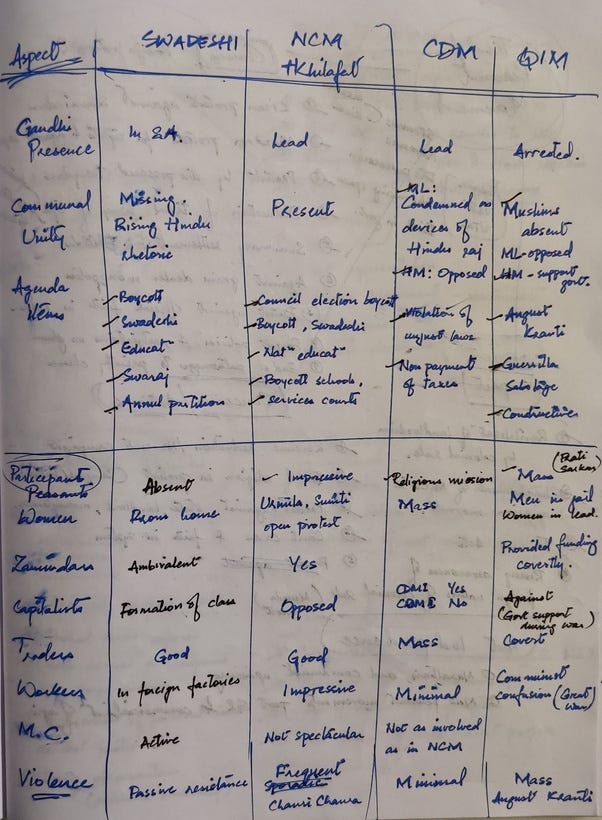
Parliamentary System
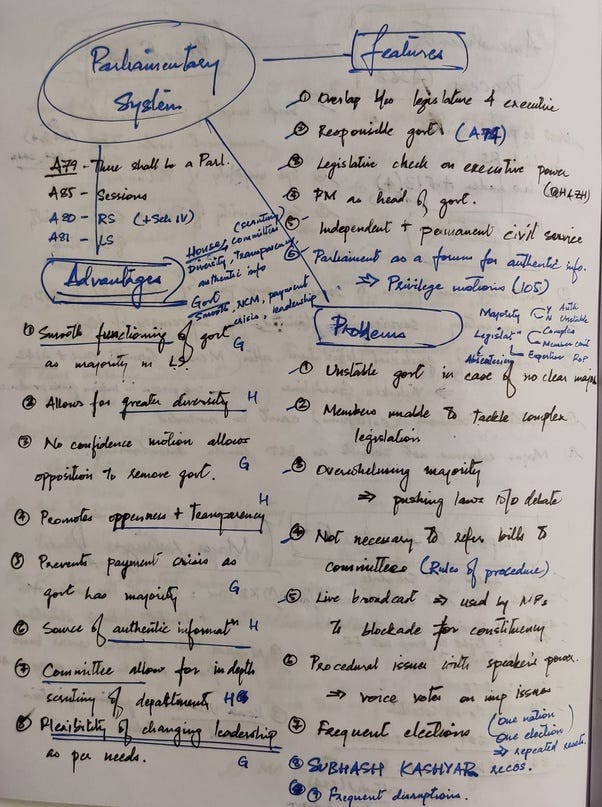
Disaster Management
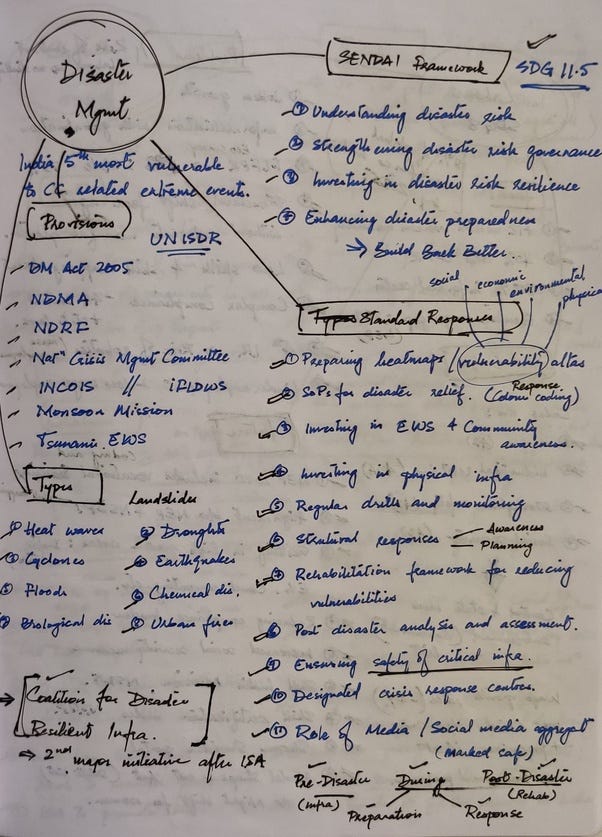
That’s all for today.
Get mentored by previous UPSC rankers
Check out our courses.

